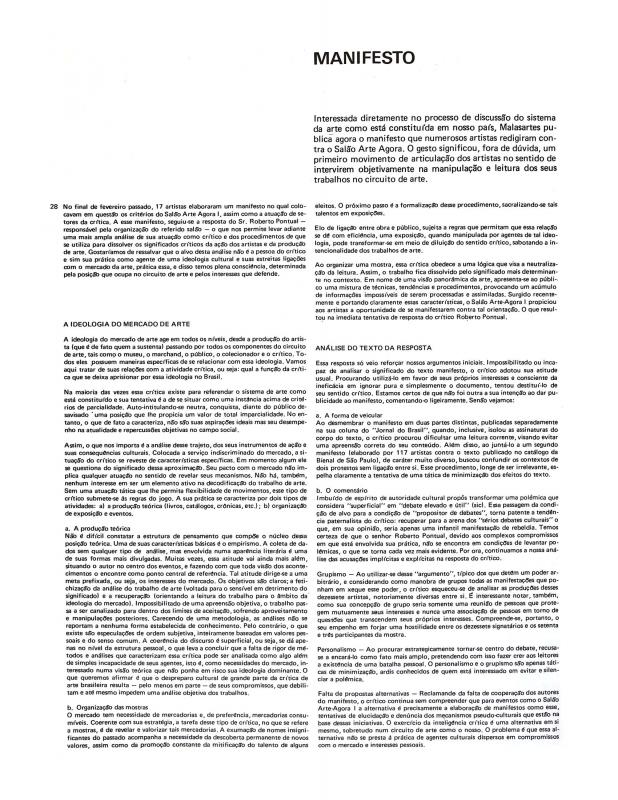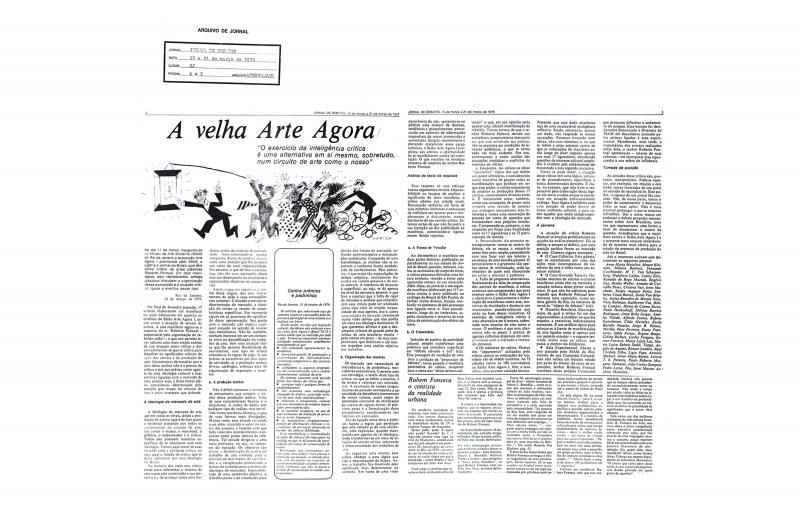The exhibition had a huge impact, mainly because countless artists questioned both the curatorial approach and its methods and how it affected the art market and the existing institutional art system. This response generated a manifesto that expressed opposition to art criticism, which was signed by several artists involved in experimental works. Those texts were published in a special supplement of the Jornal do Brasil that functioned as a guide to the exhibition. Although various regional art scenes were reviewed, the reviews did not provide lists of the artists involved.
As an example of the impact of the curatorial decisions that were made at the Museu de Arte Moderna do Rio de Janeiro in 1975, those responsible for the exhibition Arte Agora I - Brasil 70-75 sought to present a representative range of Brazilian art produced during the first half of the 1970s. A selection committee was charged with choosing the artists and works; the committee members were the Brazilian art critics Roberto Pontual (1939?94), Olívio Tavares Araújo, Márcio Sampaio (b. 1941), João Câmara Filho (b. 1944), and Aline Figueiredo (b. 1946), who signed this “panorama.”
In regard to Brazilian curatorial practices that were influential in the 1970s, in general, and the exhibition Arte Agora I: Brasil 70-75, see by Paulo Herkenhoff “Manifesto” [doc. no. 1111318], and by Anna Maria Maiolino “A velha arte agora” [doc. no. 1110593].


